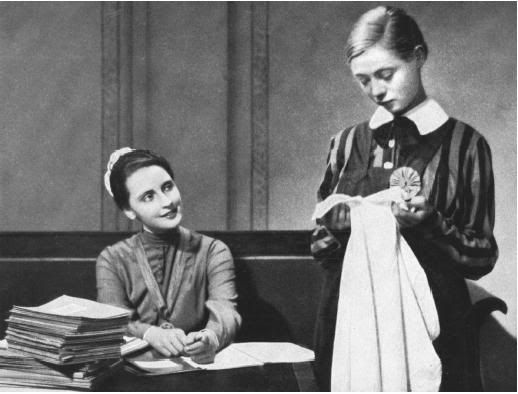
The hardest part of law school is not the reading, or the sleep deprivation, or the Socratic method, or even living 150 miles from GF and cats in the middle of the cornfields. No, the hardest part of law school is socializing.
Socializing? you say? I know--how lame is that? I have always been proud to think of myself as one of the lesser misfits of academe. To me, at least, I was the girl who could make conversation flow in a standing group of painfully awkward cup-clutchers. I vowed never to be one of those professors whose every social interaction was defined by their role as a teacher or mentor. You know who they are. They date graduate students because they like their intimacy peppered with some kind of professional security. Call it emotional tenure, if you will. In social situations, they lecture people because they are used to it. A friend of mine calls this "talking in paragraphs."
As I write this, I remember that lately I have become aware of my own tendency to talk in paragraphs, or not talk at all. I think maybe I am not so cool as I once thought. At a certain point, I fear, we all become a little teacherly in our lives. These days I find myself frighteningly out of my element. In law school, you are supposed to bond with your classmates. The school tells you that this will get you through, that your study groups will help you excel, that your law school friendships will last the rest of your life. But few of my classmates are older than 25. In fact, a large number of them have come straight from undergrad, despite encouragement on the part of the law school that everyone do something else for a year or two. I don't know what to talk to them about. I worry about seeming lonely, which I am, or tolerated, which would be worse.
I went to a social gathering at a bar during orientation week and anthropologically observed gender behaviors I hadn't seen since high school. Girls in skimpy, singles-bar wear. Boys acting gruff around the girls and each other, trying to be cool. Eventually I found the nerds and married people, but the nerds didn't really want to talk, and the married people sat stoically try to make their husbands or wives not feel excluded. I drank too much and tried desperately to make conversation. I asked people about themselves. People kept asking me about books. The best conversation I had all night was about Joyce, but I think it was more of a lecture than a conversation, though that is of course what I had been invited to deliver. I defended him passionately, then felt sick inside. I had talked too much, and in paragraphs. What if being a teacher meant that the only thing interesting about me was what I could tell people about books?
So right now I want to meet people but I don't really like softball. Beer darts? Do I really have to play beer darts? Lately I have taken to sitting in the atrium and reading, hoping that casual conversations might happen. When one does, I try to pitch in, or laugh, or just remain good-naturedly on the fringes, if that seems right. Today a couple of us passed around a crossword puzzle, and it felt like a major intimacy victory.
The other day I realized I am old enough to be their mother. That my mother was my age when I was one of them.
I try to strike up conversation with a former philosophy grad student. He is 24, but always seems older to me. I feel encouraged when I pass him in the hallway and he stops to talk.
"I'm not sure what the right thing to do is when I see people I just talked to a half an hour ago," he said. ""In these small sections we all keep running into each other. Should I stop and talk or not?"
I laugh, warming to this one. "I know!" I say. "I'm actually wondering how to communicate with people when I feel like everyone's idea of what socializing is is so different. Like, is socializing different for 40-year olds than it is for 23-year olds? Or are we all just eager to talk about the same things?"
"Well, he says, "I guess talking about talking is what you and I talk about."
"Oh, but that's very meta, so I don't know if it counts," I say. Then I add, because I like talking, "Well, I guess if you have already talked to somebody just a few minutes ago, then you can just nod if you are busy and on your way to do something." I know I sound stupid but I'm trying here, ok?
He laughs. "So since we talked here, next time I see you I'll just nod, ok?"
I nod back, but now I feel a little dizzy. So I just had a conversation about NOT having conversations?
It's all too much. I duck into the library and open my laptop. The screen lights up, and rooms telescope out from the back of my computer like a long, familiar corridor. Are those your names on the doors, you bloggers? Are you typing away or reading in your offices, studies, bedrooms? If I think about you all I hear voices, like the voices that echo in a house at a party, and the tinkle of glasses.
I think I hear your voices, familiar voices talking about books and crushes and jobs and graffiti and how much families can drive you up the wall, and children and how much you love seeing them grow up, and how sad it makes you. You talk about your pets. You trade music and poems and favorite movies. You worry and drink too much and work and laugh at yourselves.
I am still in the library, but I am somewhere else now. I know you all are out there, talking to each other and to me, humming, living your lives but touching other people you've never even seen in important and sustaining ways.
I feel lucky to know you. In the rooms you have made, all of you are conversational, strong, and graceful. None of you are clutching your cups.


